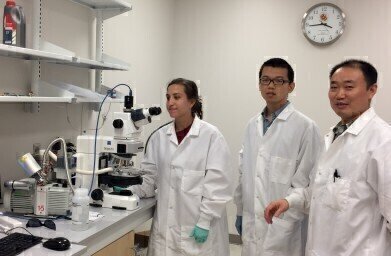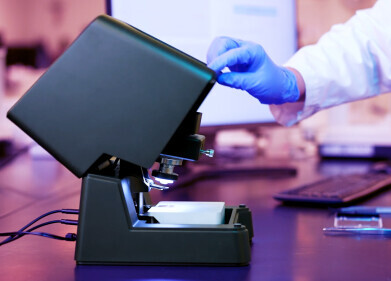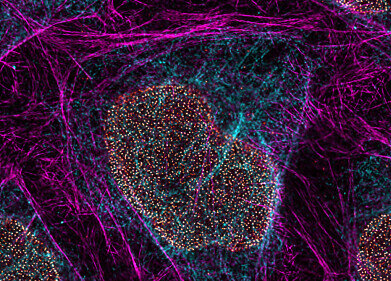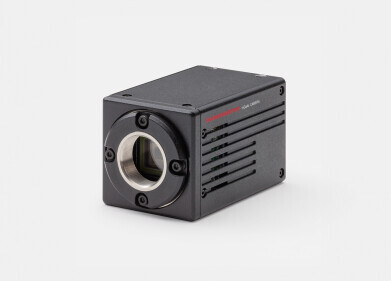-
 Professor Xiaoming 'Shawn' He (right) with two of his students, Samantha Stewart (left) and Yuntian Zhang (centre), next to the Linkam cryomicroscopy system.
Professor Xiaoming 'Shawn' He (right) with two of his students, Samantha Stewart (left) and Yuntian Zhang (centre), next to the Linkam cryomicroscopy system.
Microscopy & Microtechniques
Temperature- Controlled Microscopy Used to Study Multiscale Biomaterials to Engineer Living Cells and Tissues
Aug 17 2018
Dr Xiaoming ‘Shawn’, Professor in the Fischell Department of Bioengineering at the University of Maryland, leads a research group that is focused on developing multiscale biomaterials to engineer living cells and tissues for two applications: Cancer treatment and cell-based medicine. His base is the Multiscale Biomaterials Engineering Laboratory which is dedicated to research and education on developing multiscale (nano, micro and macro) biomaterials and devices with bioinspired spatiotemporal complexity to (1) encapsulate and deliver small molecules, genes, peptides/proteins, cells and tissues and (2) engineer 3D biomimetic systems in vitro with the ultimate goal of improving the safety and efficacy of cancer treatment, tissue regeneration and assisted reproduction.
One of the important fields in this work is lyophilisation. Professor He's Group studies ice formation during cooling and freezing biological samples to minimise the damage to biological cells during cooling and freeze-drying biological samples for banking at both cryogenic and ambient temperatures.
Over his research career starting in the Department of Biomedical Engineering at Ohio State University, Professor He has always selected Linkam stages for his freeze drying studies. This originated from the fact that Linkam stages have been reported in many published studies allowing him to compare his work with that in the literature. Professor He has been using the Linkam FDCS196 stage in his research to study ice formation. The FDCS stage is widely used in lyophilisation laboratories across the world. It combines a cryo stage with light microscopy techniques to quickly and accurately determine collapse and eutectic temperatures and intricately investigate the freeze dried structure of complex samples.
Professor He has published widely. These include a paper which describes new ways of cryopreservation of stem cells. This is important to help meet the ever-increasing demands of cell-based medicine. The role of the Linkam stage was to study the inhibition of devitrification and intracellular ice formation. A second paper, looks at ways of stopping cell injury that may occur in the cooling and warming processes. Here, the FDCS stage was used to mimic the ice seeding process and checking cell viability in situ.
For information on Linkam's range of temperature-controlled stages along with other temperature and environmental materials characterisation solutions, visit ww.linkam.co.uk.
Digital Edition
Lab Asia 31.2 April 2024
April 2024
In This Edition Chromatography Articles - Approaches to troubleshooting an SPE method for the analysis of oligonucleotides (pt i) - High-precision liquid flow processes demand full fluidic c...
View all digital editions
Events
Apr 28 2024 Montreal, Quebec, Canada
May 05 2024 Seville, Spain
InformEx Zone at CPhl North America
May 07 2024 Pennsylvania, PA, USA
May 14 2024 Oklahoma City, OK, USA
May 15 2024 Birmingham, UK





.jpg)











